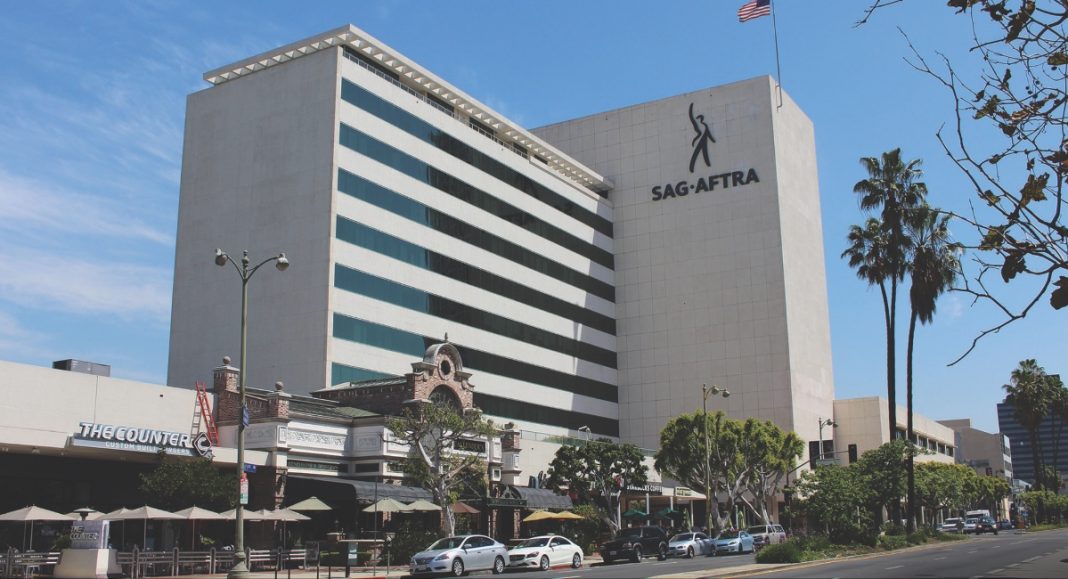Written by Javier Perez
SAG-AFTRA held a press conference on April 9, 2025, to show support and celebrate the reintroduction of the bipartisan bill, Nurture Originals, Foster Art, and Keep Entertainment Safe (NO FAKES) Act. Sponsored by Sens. Marsha Blackburn, Chris Coons, Amy Klobuchar, and Thom Tillis, the bill would be a step to safeguard the voice and likeness of creators and everyday Americans from unauthorized use and creation of digital replicas.
“The NO FAKES Act would establish the first-ever federal right of publicity in the United States, a significant advancement in the fight for creators’ rights. This bill provides a national standard to protect creators’ likenesses from being used without their consent, giving them control over their digital personas and offering recourse for unauthorized use by holding individuals, companies, and platforms accountable,” explained Nina Fraizer when the bill was introduced last year.
AI has made it easier than ever to create content using nicknames, pseudonyms, signatures, voices, videos, or photos of famous people to sell products and services without their permission. The NO FAKES Act aims to regulate their right to publicity, also called personality rights, which allow individuals to control the commercial use of their name, image, likeness, and other aspects of their identity. These are usually controlled and legislated from state to state, which is why a federal approach is so significant.
AI doesn’t just impact famous people
This doesn’t just affect famous people because deepfakes can be made of any person.
SAG-AFTRA President Fran Drescher said, “The NO FAKES Act isn’t just about protecting actors, recording artists, and broadcasters. Deepfakes can ruin all lives. It doesn’t matter if you’re a public figure or a high school student being exploited by internet creeps. It’s time to give humans the power to say NO, not my face, not my voice! Thank you Senators Blackburn, Coons, Klobuchar and Tillis for defending the rights of humans in the age of digital clones!”
“In the age of digital clones, deepfakes can be devastating,” said Duncan Crabtree-Ireland, National Executive Director and Chief Negotiator, SAG-AFTRA.
“For the creative community, this bill is especially meaningful. SAG-AFTRA members and those who rely on their face and voice for their livelihood will be able to demand platforms remove illegal voice and image clones. Creatives will also be able to seek damages from those who intentionally cause harm.As innovation continues to rapidly evolve, it’s time for commonsense legislation that defends individual rights,” Crabtree-Ireland concluded.
There have already been examples that have gone to court. Last year, Scarlett Johansson sued OpenAI. OpenAI approached Johansson to voice an AI assistant for Chat GPT. When she refused, OpenAI used a voice that sounded like Johansson’s.
CNN reported, “Legal experts say Johansson may have a powerful and credible claim in court if she does decide to sue, pointing to a long string of past cases that could lead to significant damages for one of the world’s leading AI companies and raise questions about the industry’s readiness to deal with AI’s many messy complications. That OpenAI was apparently unaware of that legal history, or at worst willfully ignorant of it, highlights what some critics say is a lack of industry oversight in AI and a need for greater protections for creators.”
Also, last year, the estate of George Carlin filed a lawsuit against Dudesy LLC, claiming that Dudesy used an AI to impersonate Carlin’s voice.
“The estate of George Carlin—composed of Main Sequence Ltd. and the estate’s executor Jerold Hamza—filed suit in January in the U.S. District Court for the Central District of California against Dudesy LLC, a company operating a website and podcast, over its creation and publication of an AI-generated podcast allegedly impersonating Carlin’s voice and comedic style. The podcast at the heart of this case, ‘George Carlin: I’m Glad I’m Dead (2024),’ is alleged to have been entirely written, created, and controlled by an AI program called Dudesy AI,” wrote Anna B. Chauvet and Maxime I. Jarquin.












